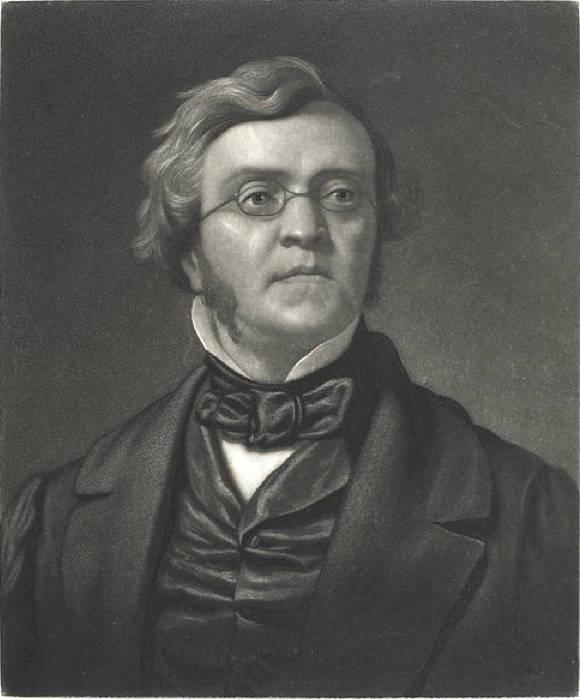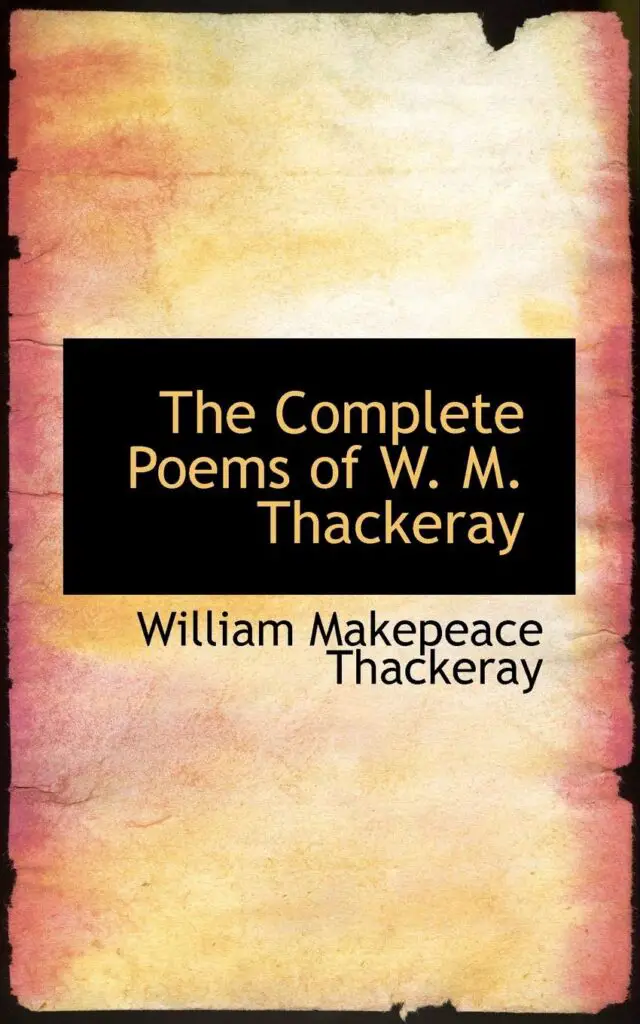“At The Church-Gate” is one of the celebrated poems of William Makepeace Thackeray. Religious beliefs of the poet gradually has become a primary theme and he gives priority to his religion.
The date of publication can be found but probably it was published between 1840 to 1850.
Summary of At a Church Gate
This poem is talking about a church where he was waiting for his beloved. Here, the poet connects the church gate with the coming of his beloved.
In the beginning, he utters that he did not enter the church and he was rounding on the spot. At the same time, he also thinks about the time that is passing fast.

Again Thackeray calls the gate as ‘scared’ though the reason can be found. Maybe the church gate is scary because of its wide opening. He was standing beside the doors and waiting for his beloved.
“With longing eyes I wait,
Expectant of her.”
At the same time, minster bells ring out and the sound is rising even more than the city route.
“And noise and humming:
They’ve hush’d the Minster bell:
The organ ‘gins to swell:
She’s coming, she’s coming!”
The noise and humming of the people get faded up with the ringing bells. Here, is also poet gives a strain to the time. ‘Bells’ is signifying the time and it also says that ‘she’s coming’.
In the third stanza, he utters that his beloved has arrived at least with her timid steps. Maybe the beloved is in fear that is why her steps are getting messed up. She is coming near to the poet and her modest eyes are at the downcast.
“She comes—she’s here—she’s past—
May heaven go with her!”
The beloved finally has come and she is standing before the poet but he is addressing the beloved ‘she’s past’. Maybe this line has a deep meaning and perhaps the beloved is not really come to him.
Then he also utters that may heaven have gone with her. So is the beloved dead? That is not very clearly written here.
“Kneel, undisturb’d, fair Saint!
Pour out your praise or plaint
Meekly and duly;”
Then he changes his view from the beloved’s coming to the saint who is sitting kneeling and seems undisturbed. The saint praises the beloved meekly and in a duly way.
The poet is not entering the place to get dirty. Maybe the beloved does not belong in the world or maybe she is already died. Maybe he is in pain which is why not trying to get more involved in the past.
In the last stanza, he utters that he is suffering from peace and he again rounds the church gate that gradually becomes unforbidden to him.
“Like outcast spirits who wait
And see through heaven’s gate
Angels within it.”
Now the poet is comparing the church gate with heaven’s gate where the angel is within it. He is addressing his beloved and truest to say she has become an angel.
Theme of At a Church Gate
Primarily the readers will think that the poem is written on the church that Thackeray visited. But the reality is that he has come to the church to get across to the beloved.

The sorrowful mind of the poet is the main theme of the poem. William Makepeace Thackeray is feeling his beloved who does not exist in reality. The poet’s love for the beloved also becomes a major theme.
Analysis and Critical Appreciation
In the beginning, Thackeray has given strength on time and says time is passing but the beloved is still not reached. Maybe in his imagination, she comes and her description is fragmented.
Her footsteps are undressed, timid. Thus, she goes to the end where a saint is providing a speech on her. From that segment, we, the readers can be assured that she is dead maybe.
And in the last line, he compares his beloved with an angel of heaven. The poem gets attention from the critical world. The critics opine that the poem fills with pain and pathetic counterpart.
Literary Devices used in At a Church Gate
‘Church-Gate’ consists of a total of thirty lines whereas the stanza has six lines. The lines of the poems are written in ‘aabccb’ though the whole poem is not matching with this rhyming pattern.
At first, Syncope becomes one of the major literary devices of the poem. Syncope is used when a poet writes a word using an apostrophe like,
“’gins”, “They’ve”, “undisturb’d”
Then comes Alliteration as a literary device. Alliteration is the repetition of sounds used in a single line like,
“Pour out your praise or plaint”
In this poem, Thackeray uses pathos that is expressing emotions about his beloved.
Exaggeration is also another poetic use of the poem and along with this enjambment is also being used just like,
“Like outcast spirits who wait
And see through heaven’s gate
Angels within it.”
Imagery is another relevant poetic device. Beloved’s coming is imagery where her uneasy steps address her fear. So, these are all significant poet uses.